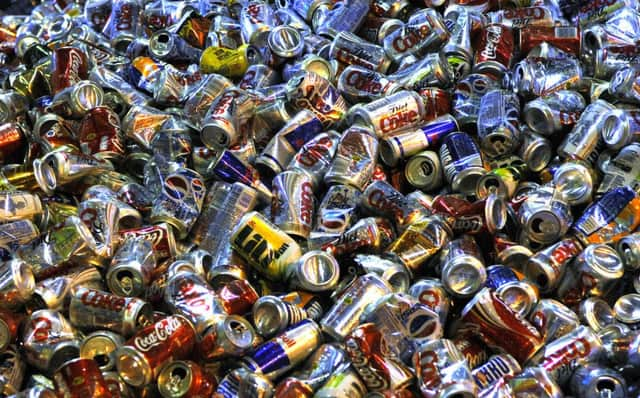Kerbside collections make sense for Scotland


AT THIS point it’s worth highlighting the contribution of the thousand or so food and drink manufacturers who produce much of the food we know and love. The sector employs 34,000 people in Scotland and accounts for almost one-fifth of the total manufacturing sector by turnover.
The sector is crucial for the Scottish economy. It is dedicated to achieving a more resource-efficient Scotland. The Scottish Food and Drink Federation (SFDF), which represents the sector, believes a collaborative approach between food and drink companies across the supply chain, Government and other stakeholders is the most effective way to help achieve this.
Advertisement
Hide AdAdvertisement
Hide AdThe Scottish Industry Advisory Group on Resource Efficiency is one example of where this approach works well. The group, which brings together SFDF, Zero Waste Scotland’s Resource Efficient Scotland programme and Interface Food & Drink, is made up of more than 20 leading food and drink companies and acts as a forum to identify and prioritise the most pressing sustainability issues in food and drink. This work builds upon the Food and Drink Federation’s (FDF) industry-leading Five-fold Environmental Ambition, which has already delivered substantial reductions in carbon emissions, water use, food and packaging waste, and transport impacts.
In order to improve recycling and reduce littering, the Scottish Government is currently considering the introduction of a deposit return system for empty bottles and cans. A study commissioned by Zero Waste Scotland has pointed to the feasibility of introducing a Scottish deposit return system, with a focus on drink containers initially, including plastic and glass bottles, metal cans and cartons. It also suggests further potential for a wider range of canned or bottled products to be included in future. Collection points would be in retail outlets or centralised locations via shop counters or automated reverse vending machines.
But we believe such a scheme would prove costly and onerous for both business and Scottish consumers. It would undermine existing kerbside recycling collections and would not increase recycling rates and/or reduce litter, as claimed. We are also concerned that no cost-benefit report was published alongside the research report, nor did the consultants appear to consult widely with retailers, local authorities or waste management companies.
There is a better alternative. SFDF has been actively engaged in the work of Packaging Recycling Group Scotland (PRGS), a group of food and drink companies and trade bodies spanning the food and drinks packaging supply chain in Scotland. PRGS has offered the Scottish Government a more effective way to boost recycling and reduce littering in Scotland. This is based on industry working in partnership with Government, local authorities and others to improve existing infrastructure for kerbside and on-the-go collection, as well as a commitment to support anti-littering campaigns as set out in the Scottish Government’s National Litter strategy. This would allow the knowledge of the various partners to be harnessed to help change consumer behaviour on recycling and litter. Moreover, this approach could start immediately and without the cost and disruption of setting up an alternative system.
A deposit return system like the one being proposed by the Scottish Government could cost Scottish households, in total, an extra £87 million per year if they forget to return the bottles and cans, or choose to recycle them at home. Consumers will be inconvenienced by the need to return, queue up and redeem their containers at a recycling vending machine located at a designated shop, which could be miles away, rather than the ease of returning them via their kerbside collection scheme. And the recent announcement by AG Barr that it is to end glass bottle returns after 110 years suggests that consumers much prefer the convenience of kerbside collection to deposit return, even with a 30p motivation. The Government’s proposal would only have a marginal impact on littering: according to Keep Scotland Beautiful, beverage packaging contributes just 6.4 per cent of all litter in Scotland.
Local authority household collection schemes have achieved good rates of recycling. It would seem sensible from an environmental and economic standpoint to build on these, rather than set up a parallel system which would not produce the expected benefits, while affecting the competitiveness of Scotland’s largest manufacturing sector.
• Ian Wright is Director General, the Food and Drink Federation, www.sfdf.org.uk
SEE ALSO